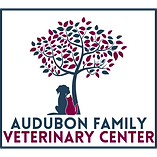How to Keep Your Pet Safe From Common Toxins
- Audubon Family Vets

- Oct 4, 2023
- 2 min read

As pet owners, it is our responsibility to keep our furry friends safe and healthy. One way to do so is by being aware of what can be toxic to dogs and cats. Here are some common household items that can be harmful to our beloved pets:
Chocolate: Chocolate contains a substance called theobromine, which can be toxic to dogs and cats. The darker the chocolate, the higher the concentration of theobromine. Symptoms of chocolate poisoning include vomiting, diarrhea, seizures, and even death in severe cases.
Onions and garlic: Onions and garlic contain compounds that can damage your pet's red blood cells, which can lead to anemia. Symptoms of onion or garlic poisoning include weakness, lethargy, and pale gums.
Grapes and raisins: Grapes and raisins can cause kidney failure in dogs. Even small amounts can be toxic and cause vomiting, diarrhea, and dehydration. If a dog ingests a grape or raisin, it's essential to immediately bring them to an emergency room.
Cleaning products: Many household cleaning products contain chemicals that can be harmful to pets if ingested. Be sure to keep cleaning products out of reach or use pet-friendly alternatives.
Medications: Human medications, even those meant for pets, can be dangerous if given in the wrong dosage. Always consult with your veterinarian before giving your pet any medication.
Plants: Certain plants, such as lilies, azaleas, and tulips, can be toxic to pets if ingested. Be sure to research any plants you bring into your home and keep them out of reach of your pets. If a cat ingests a Lily plant or comes into direct contact with the pollen, it's essential to immediately bring them to an emergency room.
It's worth noting that some flea and tick preventative medications are species-specific, meaning that the medication formulated for dogs can be harmful to cats.
In case of any of the following ingestions, contact ASPCA Poison Control immediately instead of your veterinarian. They can be reached at 888-426-4435. When seeking the appropriate treatment for your pet, it's crucial to contact a veterinary toxicologist. Even in emergency situations, animal hospitals will advise you to call a veterinary toxicologist for the correct treatment plan.
Something that can be extremely helpful to veterinary staff is taking VERY clear pictures with something like a coin or their hand for size or even bringing the ingested item/plant with them in a baggy for staff to reference.
In conclusion, it's important to be aware of what can be toxic to our furry friends and take steps to keep them safe. If you suspect your pet has ingested something toxic, contact your veterinarian immediately. With proper care and attention, we can help ensure our pets live long and healthy lives.
For more information, please visit https://www.aspca.org/pet-care/animal-poison-control or contact your veterinarian.




Comments